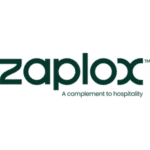 Everyone compares themselves against themselves. Has their weight increased or decreased? Did their number of steps increase this week compared to the previous week? Did they get more sleep last night than the previous night?
Everyone compares themselves against themselves. Has their weight increased or decreased? Did their number of steps increase this week compared to the previous week? Did they get more sleep last night than the previous night?
Now, what if you could only compare yourself to the time during Covid when you were working from home, maybe eating too much, and exercising too little, with irregular sleeping habits. If you were to measure how you are doing now that you are out in the world versus how you handled the shutdowns, do you think the changes you’ve made since then are indicative of what you can achieve? The results seem better, but are they truly the best you can do?
Compare those measurements with other people that have a similar age and body type, and who are at similar points of their lives. What if you knew how their weight compared to yours? How about the number of steps they take, or how much sleep they’re getting? Take that a step further – what if you knew how they were feeling in terms of energy, health, and overall vitality?
In some ways, comparing present-day you against past you is a paradox – a self-contradictory statement that seems true at first. It might seem to be true and fair to compare yourself to the past, yet the past needs to be exactly the same as it is today to be a true comparison; as a result, any conclusions you make based on this data will be inaccurate and wrong.
These same types of scenarios are relevant when looking at a hotel website’s performance. Do you compare your hotel now against your hotel a year ago? Do you have to go back several years to find an accurate measure? Or is it best to look at the present and compare yourself against hotels that are similar to your own?
Times are strange, times are changing, and although looking back at pre-shutdown times might seem like a good option, it’s not. Why? Because, thanks to the pandemic and inflation, the future is uncertain. The best way to compare your hotel to others is to find others facing similar conditions and similar threats of future cancellations. Moreover, when it comes to the health, energy, and vitality of hotels, these factors can be measured in terms of conversion, bookings, and revenue.
To this point, looking at a hotel’s direct channel website performance in isolation can lead to mediocre results and may not give you the best picture of the business. Yet, if a hotel leverages real-time benchmarking, the hotel can compare its performance against a set of selected competitors; for example, if bookings grew from 100 to 150, that’s an increase of 50% – seems great, right? This metric can be deceiving, however, if you don’t consider the overall market size. If the hotel group across the street went from 300 to 450 booked nights, which would technically be another 50% increase, then your competitor has taken significant market share and is growing at twice the rate of yours.
Most hotels measure their direct channel performance through the free service Google Analytics. The problem is that hotels only have Google Analytics on their own websites and not on their competitors’ sites. How could they possibly compare site performance in terms of analytics? This is where a solution compiling hotel websites and booking engines in every city, region, and country will help to formulate a comparison. There is only a single solution that does this, and, luckily, it’s free – just like Google Analytics. This tool is BenchDirect.
Understanding how a hotel’s present (not past) performance compares to others in a market will help identify areas for improvement. For instance, does your hotel have a lower website conversion rate than the average? Are your total room nights sold in your direct channel significantly lower than your competition?
When it comes to analyzing your hotel’s performance, one of the most important things to look at is the current direct channel results – not just your own, but also of competitors in your local proximity. The benchmark analysis provides valuable insights into the current state of your business and the overall industry climate. Benchmarking will also help you potentially identify changes in guest behavior and marketing trends that can be used to make better decisions for your business going forward.
To get actionable insights from benchmarking, you need to:
● Leverage a direct channel benchmarking analytics tool (such as BenchDirect). The system will automatically choose a set of competitors for your hotel, including your brand, nearby hotels, and look alike hotels from around the world.
● Identify a set of meaningful direct channel metrics (e.g., conversion, average booking value, length of stay, and revenue).
● Compare present performance across these metrics for your competitors.
● Analyze charts, tables, and automated recommendations for opportunities to improve your overall direct channel performance.
Although it seems to make sense to compare your hotel’s present performance with its past, the conclusions will be misleading and inaccurate. This is the paradox. However, the paradox can be mitigated by comparing your hotel to others under the exact same situations in terms of booking patterns. When a hotel does this, the analytics paradox is solved and your hotel will see even larger opportunities to generate more bookings through increased conversion, ultimately leading to more direct revenue.
































